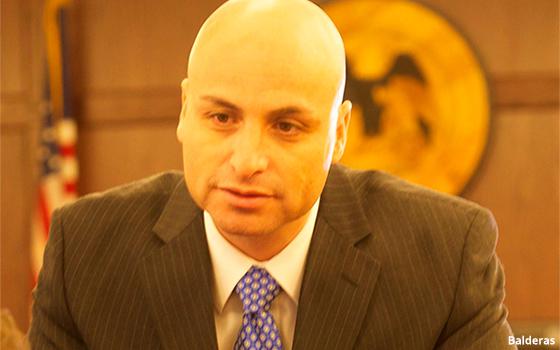
Google is urging an appellate court to leave in place a
decision dismissing New Mexico Attorney General Hector Balderas' claims that the company's educational products violate federal privacy children's privacy
U.S. District Court Judge Nancy
Freudenthal threw out Balderas's claims last year, ruling that Google complied with guidance issued by the Federal Trade Commission, which is tasked with enforcing the Children's Online Privacy
Protection Act.
That law generally prohibits companies from collecting data from children under 13 without parental permission. The FTC has said that schools can consent in lieu of parents, in
some circumstances.
The battle dates to last year, when Balderas alleged in a lawsuit that the company's web-based G Suite for Education apps, as well as its Chromebooks for students, collect
a host of data from students, without their parents' permission.
advertisement
advertisement
“While Google publicly positions Google Education as a benign tool that is an answer to resource-deprived
schools nationwide, it secretly uses Google Education as a means to monitor children while they browse the internet, including in their private homes, on their private computers and phones, and on
their private networks,” he alleged in a petition filed last February.
A Google spokesperson said at the time that the complaint contained factual errors. The company also said
it requires schools to obtain parental consent when necessary, and doesn't use personal information from primary or secondary school students to target ads.
Google also urged
Freudenthal to dismiss the complaint, contending in written papers that it complied with FTC guidance that allows schools to consent to the data collection, provided the information is used for a
school-authorized educational purpose.
Freudenthal sided with Google and dismissed the case last September.
Balderas recently appealed that ruling to the 10th Circuit Court of
Appeals, arguing in written papers that parents "should be given control over what kind of access companies have to their children."
Google counters in papers it quietly filed
last week that the FTC gave developers of educational apps the option of obtaining permission from schools.
“If an agency’s authoritative guidance says you may go through Door #1
or Door #2 to satisfy a requirement, a complaint simply alleging that “the Defendant did not enter through Door #1” does not state a plausible claim,” Google writes.
“For two decades the FTC has maintained in authoritative guidance that operators may partner with schools to satisfy notice and consent requirements,” the company adds. “The FTC
has specifically explained that schools may serve as agents or intermediaries in notifying parents and providing or obtaining the requisite consent.”
Balderas and Google recently agreed
to settle a separate children's privacy battle over data collection from young app users. The terms of that settlement have not yet been disclosed.